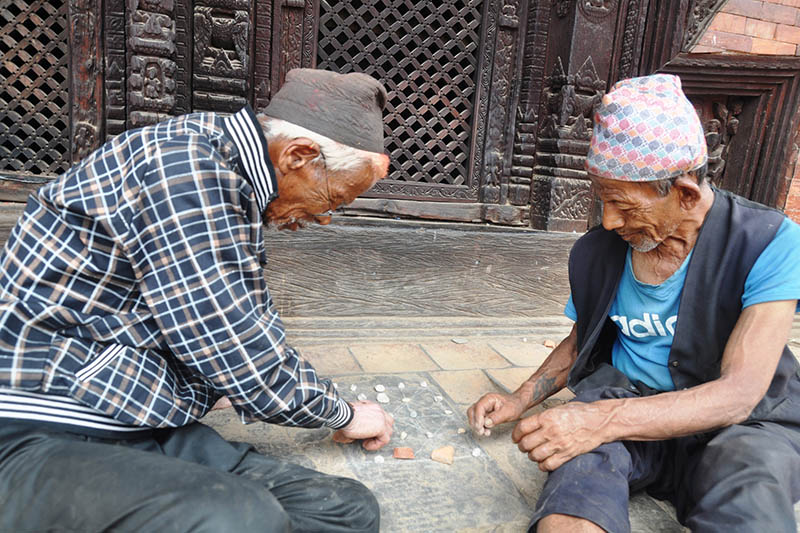Bill obliges children to deposit certain percentage of salary in parents’ account
If parents of earning children also earn through employment, business or are self-employed, then children will not be obliged to deposit money into the joint account of parents
Kathmandu, January 11
The government has registered a new bill amending the Senior Citizens Act 2006, proposing that earning children, including those who work for government offices, NGOs, INGOs, inter-governmental organisations and private firms, deposit certain amount of their earnings into the joint bank account of parents who are senior citizens.
The same rule will also apply to self-employed and businesspersons if their occupations generate annual income above the amount designated by the law. Those who receive pension will also have to deposit certain percentage in their parents’ joint bank account. Maintenance has to be provided even if parents live separately.
The bill states that whether parents of earning children live together with them or separately, they will have to deposit certain percentage of their earning into the joint account of their parents. The bill also states that if parents of earning children earn certain amount through employment, business or self-employment, then children will not have to deposit money into their parents’ joint account.
As per the bill, earning people will have to notify the concerned local levels or their offices at the end of the fiscal the amount they have deposited into their parents’ joint account.
The bill stipulates that earning people will have to inform their offices, 15 days after the bill is enacted into law, whether or not they are liable to deposit money into their parents’ accounts as per the new law.
Krishna Murari Gautam, chairperson of Ageing Nepal, an NGO working to protect the interests of senior citizens, said such maintenance should be provided by children to their parents only when parents lodged complaint seeking maintenance from children. “This provision should be enforced only after careful consideration. A person may earn Rs 25,000 in Kathmandu and s/he may have many other financial obligations to meet. If s/he is compelled to give 10 per cent of earning to parents, that could be problematic,” Gautam said and added that children should be compelled to provide maintenance to their parents only if their parents demanded it. Gautam said enforcement of the bill would not be easy. “We do not have banks in all local levels. There is no guarantee that money sent by children will go into their parents’ accounts,” he added.
Former president of National Senior Citizens Federations Gauri Shankar Lal Das said the federation had recommended that the government enact a new law placing obligation on children to provide 10 per cent of their salary to their parents as maintenance.
“The existing law also obligates families to look after senior citizens of the family. In this situation, if the children also have to deposit certain percentage of their salary into their parents’ account that will place double obligation on the children and in that case, implementation of the law may not be easy,” Das added.
Minister of Women, Children and Social Welfare Tham Maya Thapa said the government came up with the idea of compelling people to provide maintenance to their parents because the situation of senior citizens was becoming difficult.
“Sons and daughters move to different places leaving their parents in their home districts,” Minister Thapa said and added that if children deposited certain percentage of their earning into parents’ account, that would give parents a way of managing their expenses and seeking medical care.






